GERMANY: 7 Fully Funded PhD Positions in Data Science & Health

Do you want to bring artificial intelligence (AI) and data science to the forefront of health research? The Karlsruhe Institute of Technology is a top-ranked computer science university and Helmholtz research center. The German Cancer Research Center is the largest biomedical research institution in Germany with leading research in health data sciences. The Heidelberg University is the oldest university in Germany with a leading university clinic and excellent track record in scientific computing. These three top institutions joined to tackle this thrilling area by providing a unique doctoral program.
Apply if you can see the potential of techniques like deep learning in the health sector, and if you feel ready for shaping the future of our well-being. We offer projects in a collaborative research environment across discipline borders, focusing on topics in the following data science areas:
• Imaging & Diagnostics
• Surgery & Intervention 4.0
• Models for Personalized Medicine
Requirements:
We are looking for excellent graduates holding a master's degree, received by July 2022 at the latest, in computer science, mathematics, engineering, physics or related quantitative sciences (e.g. bioinformatics or medical informatics).
For a description of the application procedure and to fill in the essential HIDSS4Health application forms please visit https://www.hidss4health.de/#apply prior to submitting your application.
Cutting-edge research and working with top-experts in data science, AI, health and medicine
Inspiring work environment in an interdisciplinary setting
Integrated structured training curriculum of scientific and professional skills taught in English
Financial support for attending conferences and research collaborations, including a funded 4 months visit at a leading international or national research institution or university
A contract for a fully-funded position with competitive salary according to the applicable regulations of the participating institutions (e.g. German E13 TVöD or TV-L) at one of the three HIDSS4Health research institutions
Possible Start Date: Successful candidates will start their scientific work between May and September 2022.
Duration: The position is limited to 3 years with the possibility of prolongation.
Application Deadline: 6 February 2022
Prof. Dr. Klaus Maier-Hein
Phone +49 (0)6221/42-2354
We ask for your understanding that we do not accept applications submitted via email. We apologize for any inconvenience this may cause.
To apply for a position please visit https://www.hidss4health.de/#apply to fill in the required application documents which need to be uploaded with your application.
- skip navigation
- Data Protection
- Accessibility
- search search
- Campusplan Campus Map

KIT Graduate School Computational and Data Science | KCDS
The interdisciplinary school for doctoral researchers in the field of model-driven and data-driven computational science at KIT Center MathSEE
Doing your doctorate at KIT related to data and models?
Apply for an association
Course Program 2024
Lectures, seminars, workshops, events
Upcoming events
- Alumni und Freunde des KIT
- Foreign Students
- Interested / Everyone
- Research and Partners
- Scientific Staff
- Young Scientists
- Online Seminar
- General Competence Workshop
The second annual KCDS Retreat took place from November 13-15, 2023 at Naturfreundehaus Kniebis in the Black Forest.
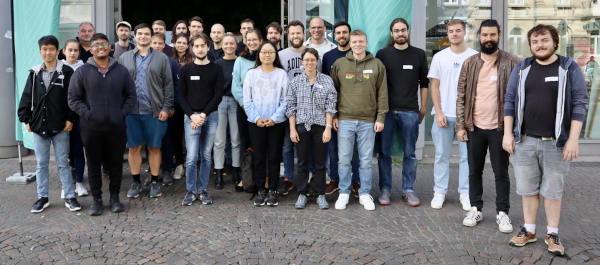
The workshop with a focus on "Recent Advances in Kernel Methods for Neural Networks" took place in October 5-6, 2023 at the Triangel.
The first KCDS Summer School centered on the topic of Stochastic and Hybrid Modelling and took place at KIT Campus South, September 18-20, 2023.
Past events

KCDS Fellows present their PhD projects on February 26, 2024 on-site at Triangel and on Zoom
Prof. Dr. Markus Anthony Stricker, Interdisciplinary Centre for Advanced Materials Simulation (ICAMS) at Ruhr-University Bochum on January 29, 2024 on-site at TRIANGEL and on Zoom
Online workshop (Dec 11/12, 2023) organized by Anne Reinarz (Durham) and Linus Seelinger (KIT).

KCDS Fellows present their PhD projects on Nov 27, 2023, 11-12h on-site at TRIANGEL.space and on Zoom

Scientific exchange and networking in the Black Forest, Nov 13-15, 2023

KCDS Fellows present their PhD projects on Oct 23, 2023, 11-12h on-site at TRIANGEL.space and on Zoom

Deep Learning Workshop (Oct 5-6, on-site at TRIANGEL.space)

... Over-Parameterization and Feature Learning"; Invited Talk (Oct 4, on-site at KIT Campus South)

Symposium on Applications of Mathematical Sciences September 27-29, 2023 at KIT Register now!

PD Dr. Andreas Ott (IAG), September 26, 2023, 13:00-14:00h

Sep 18-20, 2023 at KIT

KCDS Fellows present: Elevator Pitches on PhD projects and previous scientific work + KCDS 1st Birthday Party on June 27, 2023, 13:00-14:00

June 19-21, 2023 on-site in Heidelberg
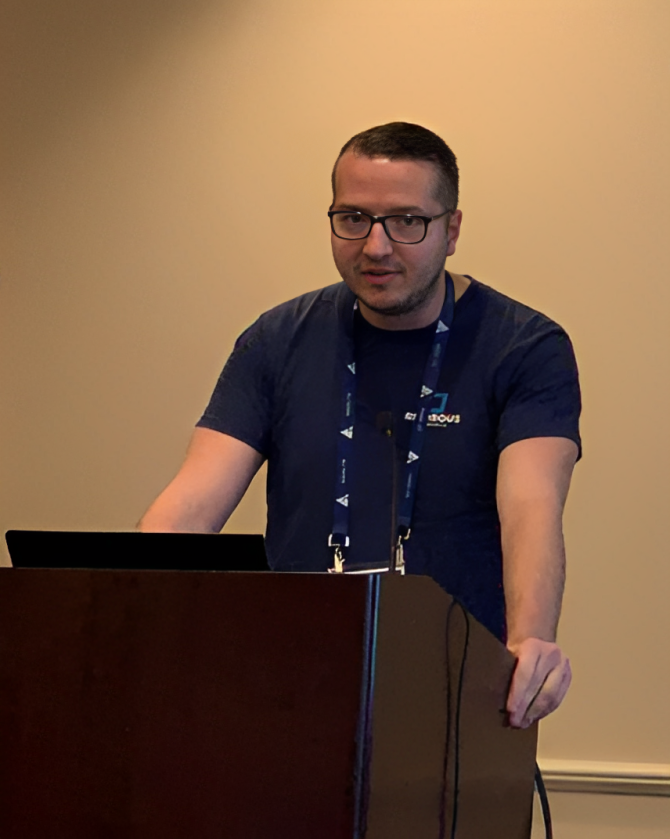
Dr. John A. Warwicker (IOR), May 23, 2023, 13:00-14:00h

Find out about the doctoral projects offered in this application round
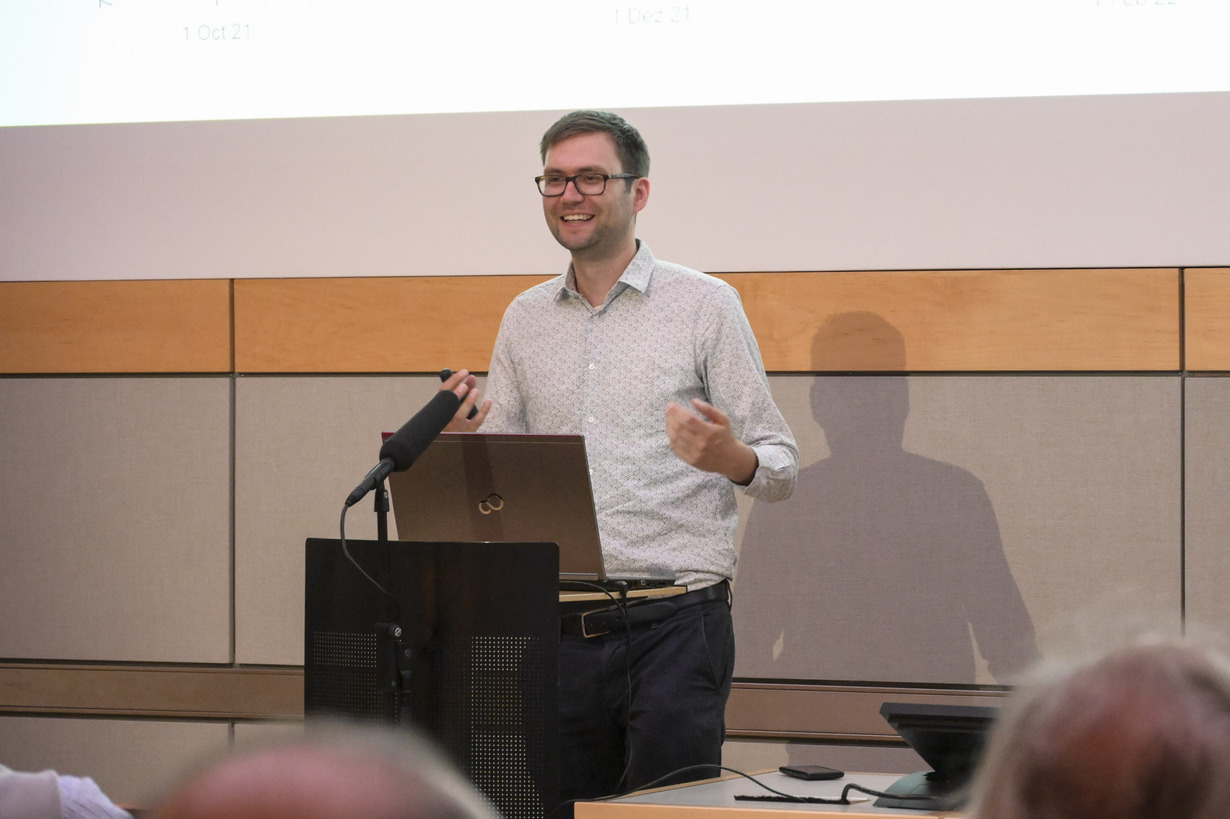
Dr. Johannes Bracher (ECON), April 25, 2023, 13:00-14:00h
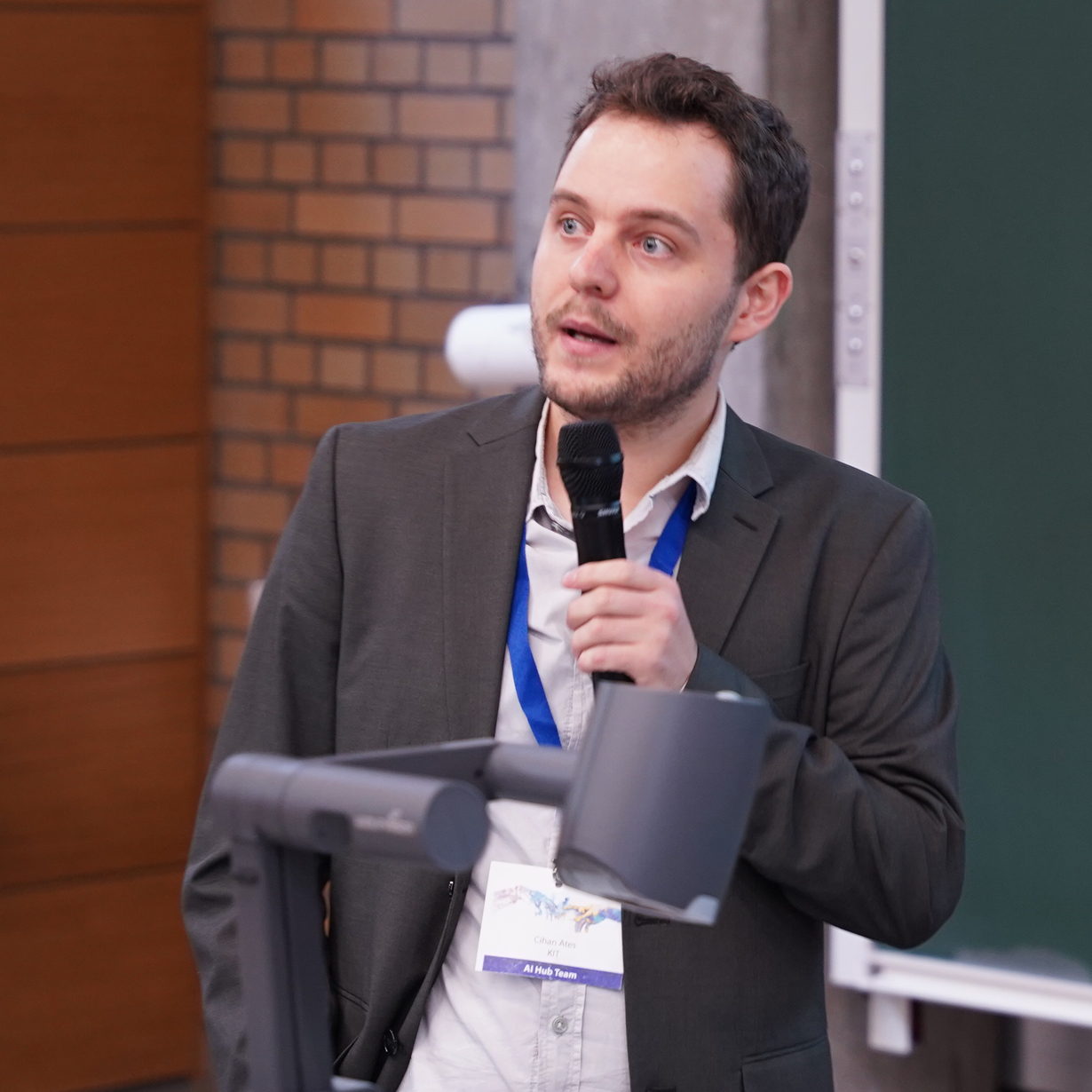
Dr. Cihan Ates (ITS), March 28, 2023, 13:00-14:00h
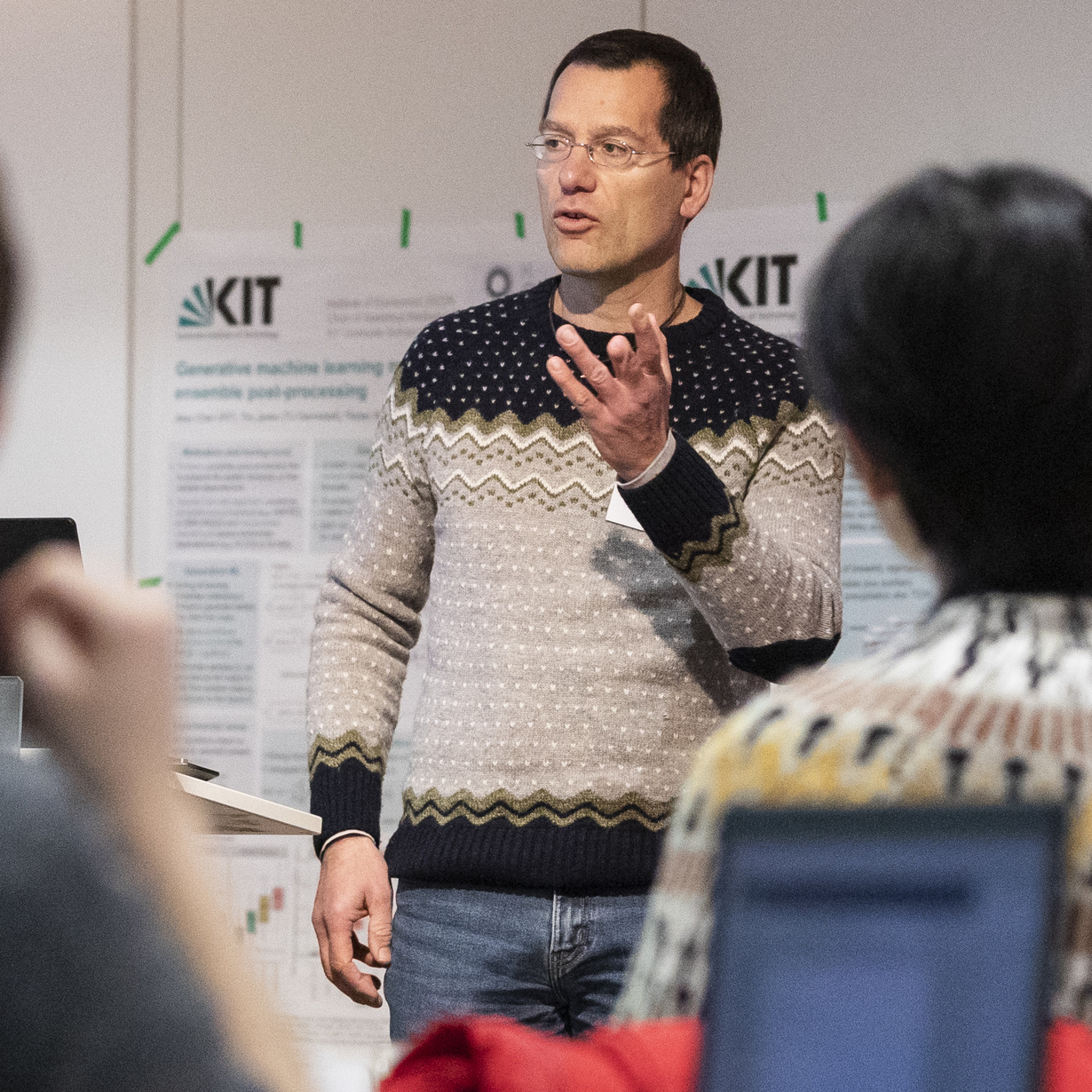
PD Dr.-Ing. Uwe Ehret (IWG), Feb 28, 2023, 13:00-14:00h
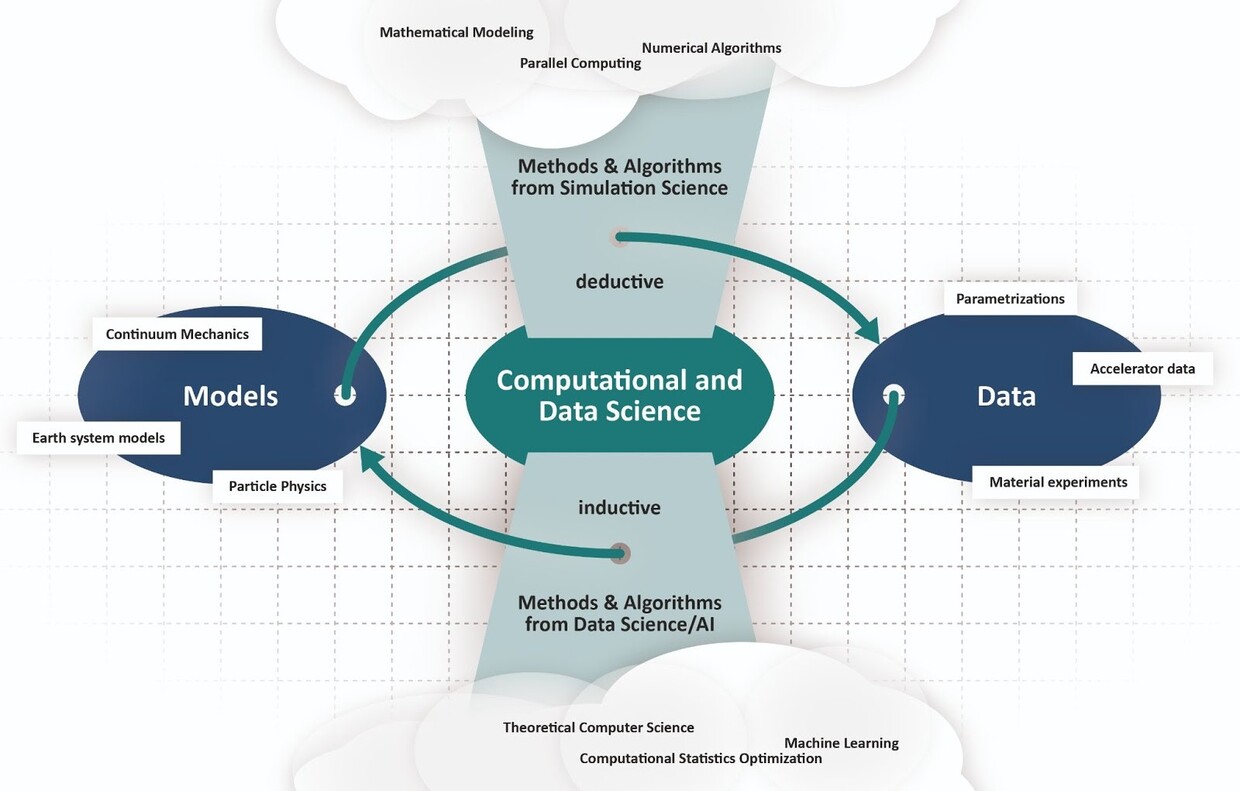
Coordination Office
36 data-science-phd positions at DAAD in Germany
Filtered by.
- data-science-phd
Refine Your Search
- Scholarship 22
- Research Job 11
- Fellowship 9
- Postdoctoral 2
- Postgraduate 2
- Economics 14
- Medical Sciences 6
- Mathematics 2
- Computer Science 1
- Education 1
- Humanities 1
- Linguistics 1
In-Country/In Region Scholarships Programme at SEARCA FS • DAAD
. The scholarships at SEARCA are available in the following fields: UPLB: Master - Food Science (Nutritional, Domestic and Food Sciences ) UPLB: PhD - Food Science (Nutritional, Domestic and Food Sciences UPM: Master
In-Country/In Region Scholarships Programme at IITD • DAAD
PhD in Atmospheric and Oceanic Science and Technology Female applicants and candidates from less privileged regions or groups are especially encouraged to participate in the programme. Duration
In-Country/In Region Scholarships Programme at SEARCA NRM • DAAD
to contribute to sustainable development. To this end, scholarships are granted for development-related PhD and Master studies for individuals who plan to pursue a career in teaching and / or research at a higher
In-Country/In Region Scholarships Programme at UGM • DAAD
to contribute to sustainable development. To this end, scholarships are granted for development-related PhD and Master studies for individuals who plan to pursue a career in teaching and/or research at a higher
In-Country/In Region Scholarships Programme at AIT • DAAD
German cancer research center (dkfz): international phd programme.
, computational biology, computer science , epidemiology/public health studies and related subjects are invited to apply for the international PhD programme. PhD students are supported by a Thesis Advisory Committee
Bayer Foundation: Otto Bayer Fellowship in Drug Discovery
submit an innovative research proposal, which will be funded individually. Target Group students in Master's or PhD programmes from the following subjects: natural science pharmacy data science Academic
HessenFonds for Refugees and Researchers at Risk
available in the further tabs (e.g. “Application requirements”). Programme Description As part of the HessenFonds, the Hessian Ministry of Higher Education, Research, Science and the Arts (HMWK) provides
Bayer Foundation: Carl Duisberg Fellowships in Medical Sciences
or for an MSc or PhD (or equivalent) in medical engineering, applied medical sciences , public health, or data science in medicine. It funds students from Germany who wish to carry out research stays, internships
Residential Fellowships at the Center for Advanced Internet Studies (CAIS)
theses or PhD dissertations cannot be funded. Number of Scholarships 18 Duration 3 or 6 months Scholarship Value Fellows at CAIS should ideally be on sabbatical leave with a full salary. In that case
Searches related to data science phd
- machine learning phd
- data science
- computer science
- data analytics phd
- big data phd
- machine learning
- mathematics
- Plan Your Studies
- Study Programs
- Universities
- Requirements
- Living in Germany
- Accommodation
- Statistics & News

Masters in Data Science in Germany – Top Programs 2024
Considered the profession of the future, data science offers a rewarding career path, although one filled with challenges. In our current technological era, the demand for professionals capable of analyzing statistical data continues to grow.
If you want to become a data scientist, pursuing a master’s degree in Data Science in Germany provides you with the skills needed to succeed in this field.
Here are the best universities in Germany to pursue master’s in Data Science:
Here’s a breakdown of master’s in Data Science in Germany by university and eligibility:
Technical University of Munich
The challenge of dealing with massive amounts of data is becoming increasingly important in science and industry. First, it’s now more affordable to create and store large datasets thanks to decreasing costs of storage space, sensors, smart devices, and social networks.
Second, technological advancements such as multi-core systems and cloud computing allow us to work with these large datasets effectively. Third, large volumes of data are no longer limited to traditional business data; they are generated in various aspects of our lives. For instance, vehicles produce sensor data and share information through smart networks, and intelligent energy grids also generate data.

Study at Berlin School of Business and Innovation
Creating Tomorrow's Industry Leaders
In response to these trends, the Data Engineering and Analytics master’s program at the Technical University of Munich prepares students for the challenges of Big Data. It equips graduates with the skills to design and implement practical solutions for handling large datasets in industry. Additionally, it provides a strong foundation for those interested in pursuing research.
The Technical University of Munich offers programs in:
- Data Engineering and Analytics (English)
- Mathematics in Data Science (English)
- Computational Mechanics (English)
The admission requirements for the Data Engineering and Analytics program at TUM are:
- A statement (max. 2 pages) explaining why you chose this master’s program at TUM.
- Your CV or résumé.
- A 1,000-word scientific essay on a specific topic.
- An “Analysis of the Curriculum” form.
- Bachelor’s degree certificate with course list and grades (translated if not in German or English).
- Curriculum details of your previous degree.
- Proof of English language proficiency.
- GRE or Gate score (if applicable for certain countries).
- Preliminary documentation from uni-assist (for non-EU/EEA applicants).
- APS certificate (for applicants from specific countries).
- Certificates for relevant additional qualifications (optional).
- A passport photo.
- A copy of your passport.
> Browse all Data Science programs at this university here .
Technical University of Berlin
Digitalization is changing our lives significantly, affecting work, leisure, and daily routines. The Computer Science master’s program at TU Berlin equips graduates with the skills needed to shape this digital world actively. The program covers a wide range of modules that address current and innovative computer science topics, allowing students to specialize in various areas.
For the IT field, English is not just a technical language but also the primary working language. That’s why this master’s program is offered in English, preparing students for careers in the globalized IT industry. This international perspective attracts students from around the world, creating a diverse and cosmopolitan learning environment.
The Technical University of Berlin offers programs in:
- Computer Science (Informatik) (English)
- Computational Engineering Science (German)
- Computer Engineering (German)
The admission requirements for the Computer Science program at the Technical University of Berlin are:
- A bachelor’s degree in computer science or related field that qualifies you for professional work.
The program you completed should include:
- 36 credit points in computer science fundamentals, with:
- 12 credit points in theoretical computer science
- 12 credit points in computer engineering or information technology
- 12 credit points in methodological-practical computer science
- 18 credit points in mathematics.
- You must also have at least 30 more credit points in computer science, excluding your bachelor’s thesis.
- Additional subject-specific and language-level requirements may apply, which you can find in the application regulations.
> Browse all Data Science programs at this university here.
RWTH Aachen University
Data Science is a growing and widely applicable field. It’s important in natural sciences, engineering, and medical science. Our data is large, diverse, and not always completely reliable. It’s a field that combines computer science, mathematics, and statistics and is used in many different areas.
The main focus of Aachen University’s Data Science program is on analyzing data and building information systems. This program teaches modern methods for analyzing data, along with algorithms and techniques for creating information systems.
Students can choose to specialize in specific areas like Computer Science, Mathematics, Business Analytics, Computational Life Science, Computational Social Science, or Physics.
RWTH Aachen University offers programs in:
- Data Science (English)
- Data Analytics & Decision Science (English)
- Medical Data Science (German and English)
- Computer Science (German and English)
The admission requirements for the Data Science program at RWTH Aachen University are:
- Bachelor’s degree in Computer Science, Mathematics, Physics, or a related field.
- Fulfill one of these profiles: Computer Science, Mathematics, or Physics.
- Quantitative Reasoning: minimum 75th percentile.
- Verbal Reasoning: minimum 15th percentile.
- Analytical Writing: minimum score of 3.5.
Ludwig Maximilian University of Munich
LMU Munich offers an advanced program in Data Science, which is a collaboration between the Statistics Department and the Institute for Informatics. This program is a part of the Elite Network of Bavaria, known for its excellence.
In this program, students follow a modular curriculum. They learn how to work with large and complex data, analyze it, and draw meaningful conclusions from it. They also cover important topics like data security, privacy, and ethics. Plus, students can solve real-world problems with industry partners during practical sessions. The program includes summer schools, focused tutorials, and great learning opportunities.
Once you graduate from this program, you’ll be well-prepared for a career as a data scientist in various fields like economics, politics, sociology, healthcare, and more. You can also choose to pursue further studies at the doctoral level in different academic areas that rely on data analysis.
Here are some of the programs offered at LMU:
- Statistics and Data Science (English)
- Software Engineering (English)
The admission requirements for the Statistics and Data Science program at LMU Munich are:
- Bachelor’s degree in Statistics or Data Science with 150 ECTS (can submit final degree later).
- English proficiency at the B2 level or an English degree.
- Minimum A1 level of German knowledge (can provide proof later).
- Apply online by July 15th (winter semester) or January 15th (summer semester).
Karlsruhe Institute of Technology
One unique feature of this program is that there are no mandatory courses. You have a lot of freedom to choose your own path. The program consists of core modules, in-depth modules, supplementary subject modules, and interdisciplinary modules (key qualifications).
To successfully complete the master’s program, you need a total of 120 credit points, and you should finish by the end of the 6th semester. You can assign core and in-depth modules to either a specialized subject or an elective subject. In-depth modules cover advanced courses at the Faculty of Computer Science, including seminars and internships.
Karlsruhe Institute of Technology offers programs in:
- Computer Science (German)
The admission requirements for the Computer Science program at the Karlsruhe Institute of Technology are:
- A bachelor’s degree in computer science or a related field.
- The bachelor’s program should be at least three years long with a minimum of 180 ECTS points.
- Theoretical Computer Science: 15 points
- Practical Computer Science: 30 points
- Technical Computer Science: 8 points
- Mathematics: 25 points
Technical University of Darmstadt
This M.Sc. Computer Science program in English offers you the flexibility to customize your studies. You can choose from different electives and specialization areas, such as Software and Hardware, Theory, Data Science and Engineering, Distributed Computing, and Visual Computing.
The Technical University of Darmstadt offers programs in:
- Computer Science (English)
- Computational Engineering (German)
- Informatik (German)
- Information and Communication Engineering (English)
The admission requirements for the Computer Science program at the Technical University of Darmstadt are:
- A B.Sc. degree in Informatik from TU Darmstadt or an equivalent degree.
- English proficiency at C1 level.
- Additional requirements regarding study regulations and competencies.
University of Mannheim
The University of Mannheim is located in Schloss. The city center is perfectly aligned with Schloss, making it convenient for students to access lecture halls right in the heart of the city. With around 1,050 scholars and 12,000 students, the university offers a privileged learning experience at this exceptional location.
The University of Mannheim is well-connected globally, with partnerships extending to over 450 academic institutions worldwide. This extensive network allows the university to provide more than 150 exchange programs for its students. The academic community includes scholars and students from across Europe and beyond, contributing to the diverse course offerings.
As a result, many elective modules at the Department of Economics are taught in English, and some mandatory courses are available in both German and English to accommodate a broader audience.
The University of Mannheim offers programs in:
The admission requirements for the Data Science program at the University of Mannheim are:
- Bachelor’s degree in Informatics, Mathematics, or a related field.
- Bachelor’s degree with a total of 180 ECTS credits or a standard study duration of six semesters.
- Accumulation of at least 48 ECTS credits in informatics, mathematics, statistics, or empirical research methods.
- A final grade of 2.5 or better is required for admission.
- The 48 ECTS credits in relevant subjects must be completed before the first examination registration.
Trier University
The University of Trier is known for its strengths in humanities, social sciences, and environmental research. It also excels in psychology and environmental sciences. The university offers a wide range of disciplines, from languages and economics to law and specialized subjects like computational linguistics and papyrology.
What makes the university unique is its strong international focus. It has partnerships with over 190 European universities and 40 worldwide, providing students and faculty with opportunities to study and collaborate abroad.
The university is also home to students from around 100 countries, making it a diverse and appealing place to study. Additionally, the university emphasizes foreign language training for lawyers and economists, offering courses in ten different languages. Its connections in the Asian region are particularly noteworthy.
Trier University offers programs in:
The admission requirements for the Data Science program at TrierUniversity are:
- Bachelor’s degree required from a German or foreign university with at least 180 ECTS credits.
- Specific fields like mathematics, business informatics, computer sciences, or economics have credit point exemptions.
- For other fields, at least 50 credit points in computer sciences, mathematics, or statistics are needed.
- GPA requirements: 1.7 or better for certain fields, 1.4 or better for related fields.
- English language proficiency required (details in university regulations).
- A one-page letter of motivation is mandatory.
Is Germany Good for Masters in Data Science?
Germany is an excellent destination for data science studies, with many of its universities boasting impressive global rankings.
How Much Does a Master’s in Data Science in Germany Cost?
In public universities in Germany, a Master’s in Data Science is usually free of tuition fees. However, students are required to pay a semester contribution, which usually ranges from 100.00€ to 500.00€ per semester, depending on the state and university.
For private universities in Germany, the cost of a Master’s in Data Science varies. Tuition fees at private institutions are generally higher than at public universities and can range from a few thousand euros to over 20,000€ per year.
How Long Is MS in Data Science in Germany?
A Master’s in Data Science in Germany typically has a duration of two years, or four semesters, for full-time programs.
Are There Scholarships for Data Science Masters in Germany?
Yes, there are scholarships available for Data Science Masters in Germany, such as the Heinrich Böll Foundation Scholarship. This scholarship is open to both domestic and international students, providing full funding for those pursuing a Master’s in Data Science in Germany.
What Are The Admission Requirements for a Master’s in Data Science in Germany?
For admission to a Master’s in Data Science program in Germany, common requirements include:
- Bachelor’s Degree in a relevant field.
- Academic Transcripts.
- Language Proficiency (English or German).
- GRE/GATE Scores (occasionally required).
- Prerequisite Courses (if necessary).
- Letters of Recommendation.
- Statement of Purpose.
- Application Fee.
Is It Easy to Get a Job in Germany After Masters in Data Science?
Yes! Data science is in demand in Germany. Getting a job here after completing a master’s in data science is relatively easier compared to many other countries, given the strong demand for data science professionals in the country.
What Is the Highest Paying Data Science Job in Germany?
The highest-paying Data Science job in Germany is often the position of a Data Science Manager or Director, with a median salary of €110,000 per year, which is equivalent to €9,000 per month.
Methodology for Ranking Masters in Data Science in Germany (2024)
Our methodology is designed to objectively evaluate and rank universities offering Master’s programs in Data Science in Germany. The key metrics in our evaluation include:
- University Subject Score: We aggregate and average the subject scores from renowned ranking bodies such as QS , US News , and Times Higher Education (THE) . This ensures a holistic view of each university’s academic reputation and program quality.
- Data Science Master’s Programs (Including Related Fields): We assess the range and depth of Data Science and related programs (e.g., Machine Learning, Big Data Analytics) offered by the university. This metric considers the diversity and specialization opportunities available to students.
- Global Employability Rank (THE): We incorporate the employability rankings from THE, focusing on the employability of graduates from Data Science programs. This reflects the real-world applicability of the education and the university’s reputation among employers.
- Language of Instruction: Recognizing the global nature of the field, we consider the availability of programs taught in English. This factor is crucial for attracting international talent and ensuring accessibility for a diverse student body.
- Industry Collaborations: We evaluate the extent and quality of a university’s collaborations with the data science industry. This includes partnerships for research, internships, guest lectures, and job placements, which enhance practical learning and career opportunities for students.
- This methodology ensures a balanced and comprehensive ranking, highlighting institutions that excel not only in academic rigor but also in practical, real-world applications and global employability in the field of Data Science.
For further details or inquiries, please reach out to us at [email protected] .
Join 262,114 students interested in studying in Germany

Download The Guide

Quick Links
8 Steps to Study in Germany How To Apply To Study in Germany German Education System Requirements Universities in Germany International Programmes Financing Your Studies German Student Visa German Health Insurance Germany Blocked Account Learn German Guide German Cities Cost of Living
Latest News and Statistics
Germany to double annual work visa quota for western balkans from june 1, indians overcome chinese as top source of international students in germany, over 3,800 university students in germany were under 18 in 2022, higher education in germany: key trends & statistics, german universities’ spending €3.3 billion higher in 2022.
- Privacy Policy
- Cookie Policy
Cookie Consent
To improve the website, the DAAD and third parties set cookies and process usage data . In doing so, the DAAD and third parties transfer usage data to third countries in which there is no level of data protection comparable to that under EU law. By clicking the "Accept all" button, you consent to this processing. You can also find selection options and explanations of these cookies and processing at the end of this page under "Cookies". There you can withdraw consent at any time with effect for the future.
- Privacy Policy
Jump to content

Higher Education Compass
Artificial intelligence and data science full time, master of science.
Master Degree
4 semesters
Standard period of study (amount)

July 2024 (Germans and inhabitants)
July 2024 (EU), January 2025 (Non-EU) Please enquire
Overview and admission
Admission semester.
Summer and Winter Semester
Area of study
Computer Science
Target group
The degree course in Artificial Intelligence and Data Science is aimed at students who have completed a Bachelor's degree course of at least six semesters or equivalent academic degree in Artificial Intelligence and Data Science, Data Science, Computer Science, Software Engineering or in a degree course with related content.
Admission modus
selection by the HEI
Admission requirements (Link)
Lecture period
- 14.10.2024 - 08.02.2025
- 07.04.2025 - 19.07.2025
Application deadlines
Summer semester (2025), deadlines for international students from the european union.
01.12.2024 - 15.01.2025
Deadlines for international students from countries that are not members of the European Union
For all information for international students, visit www.uni-stuttgart.de/studium/bewerbung/international-degree/
Application deadline for Germans and inhabitants
Winter semester (2024/2025).
15.05.2024 - 15.07.2024
Tuition fee
Fees (Link)
The state of Baden-Württemberg charges tuition fees for a second degree (EUR 650/semester) and for students from non-European countries (EUR 1,500/semester). For information about tuition fees, please refer to our website.
Languages of instruction
Main language.
Deutscher Akademischer Austauschdienst e.V. Kennedyallee 50 53175 Bonn
All addresses in the DAAD Network
DAAD Newsletters
Receive regular up-to-date information about our work and organisation.
Newsletter - DAAD
Useful Links
- Find Scholarships
- DAAD offices worldwide
Jump to top of page

Department of Data Science
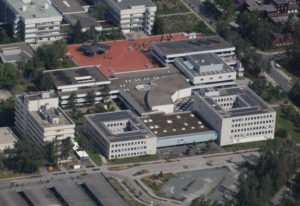
Our society is increasingly complex and diverse and technology rapidly evolves to face its challenges, offering opportunities, solutions and products that we could not imagine until very recently. Simultaneously science experiences a new revolution, driven by the new data paradigm. The demand of new analytical understanding and computational methods constantly accelerates. Consequently, the traditional mechanistic approach needs to integrate the fact that information is encoded in data, and that the most challenging questions and its responses have to be formulated in the same terms.
Data Sciences is the scientific area where Mathematics, Statistics and Computer Sciences meet to face contemporary challenges.
Rooted in the Department of Mathematics and integrating the input of scientists from other departments, faculties and institutions, the DDS has generated a new structure. Working in agile teams aims to address the educational and research challenges arising in the field in a multidisciplinary and dynamic manner.
Together with the Department of Mathematics it offers a joint range of study programmes which include the bachelor programmes Data Science, Mathematics , Business Mathematics and Technomathematics , the master programmes Data Science , Mathematics, Business Mathematics and Computational and Applied Mathematics as well as education of mathematics for teaching at secondary school and high school.
- Prospective students
- New students
- Current students
- School students
- Press & media
- University staff
- Academic programmes
- Applying & enrolling
- Study organisation
- University sports
- Lifelong learning
- Human resources
- Job vacancies
- Intranet (SharePoint)
- All faculties
- Bachelor's degrees
- Master's degrees
- Teacher training programmes
- State examination programmes
- Professional study programmes
- Degrees and subject areas
- International programmes
- Certificates
- First-degree programmes
- Master's programmes
- International applicants
- Other applicants
- Grade thresholds
- Starting your studies
- Course catalogue
- Semester dates
- Financing your studies
- Daily student life
Central Student Advisory Service
- Admissions Office
- Course and programme advisers
- International advisory services
- Peer guidance and support
- Mentoring schemes
- Support and welfare
- Feedback and complaints
- Choosing the right degree programme
- Finding your programme (study finder)
- Experience reports
- Information for school students
- Studying in Saarland
- Leaflets & brochures
- Future Students Club
- Starting your career
- Continuing education
- Job seeking
- Advisory services
- Food and drink
- Shops and services
- Recreational and leisure activities
- Get involved
- Research news
- Key research fields
- Research projects
- The campus research environment
- Early career researchers
- Partnerships
- Research Management Division
- External research funding
- Special research fund
- HRS4R Strategy
- Funding information lunch
- Additional information
- Events calendar
- Press photos
- Online magazine
- Media coverage
- Press and Public Relations Office
- Facts and figures
- Academic ranking
- Working at the university
- Supporters and friends
- University Board
- University Senate
- University Council
- Faculties and professorial staff
- Institutions
- Central Administration
- Representative councils
- Studying abroad
- Work placements abroad
- Staff mobility
- International Office
- Studying and work placements
- Learning German
- Research, teaching, doctoral studies
- International alumni
- The Welcome Center
- Additional information and advice
- Internationalization
- Institutions and facilities
- Study and doctoral programmes
- International research
- Degree programmes and certificates
- Spotlight on France
- Transform4Europe
- The 'University of the Greater Region'
- Saarland University /
- Academic programmes /
- Master's degrees /
- Data Science and Artificial Intelligence
Data Science and Artificial Intelligence (M.Sc.)
Artificial intelligence is now being put to use everywhere, in online shopping, autonomous driving or medical data analysis. The international master's programme 'Data Science and Artificial Intelligence' aims to prepare students for demanding national and international research and development activities in this field. The Master's programme is based on complex data analysis and automation: from mathematics and statistics to machine learning, artificial intelligence, big data, data management, modelling and simulation or data visualization.
Students work on concrete questions and problems of application subjects such as computer linguistics, physics, material sciences, chemistry, psychology and biology. By dealing with sensitive data, aspects of IT security, law, data protection, philosophy and ethics are also important considerations in this course of study. An industrial internship and a master internship in a research group can be included in the elective requirements.
Along with the professors in Saarland University's Department of Computer Science and Department of Language Science and Technology, scientists from the six renowned research centers on campus teach in the Data Science and Artificial Intelligence programme. Those experts conduct application-oriented research in the fields of Data Science, Artificial Intelligence, Machine Learning and Big Data and prepare you comprehensively for the challenges of the digital future.
- Machine Learning
- Artificial Intelligence
- Data Management
- Modeling und Simulation
- Data Visualization
- Mathematics und Statistics
- Computer Security
Course programme
The master's programme comprises 120 CP:
- 18 CP core lectures in 'Data Science and Artificial Intelligence' (DSAI)
- 9 CP core lectures in 'Informatics'
- 27–31 CP core lectures, advanced lectures or seminars in DSAI
- 7 CP seminars in DSAI
- min. 17 CP electives
- 12 CP Master's module including the master's seminar
- 30 CP master's thesis
Requirements for application
- Bachelor's degree from a German university (at least 180 CP) or an equivalent qualification from a foreign university in computer science, informatics or a related field
- Advanced proficiency in English (level C1)
- Personal statement written by the applicant and two letters of recommendation written by referees who know the applicant academically to give evidence of the applicant's particular interest in the subject
- A level of knowledge and competence that corresponds to that acquired in the Bachelor's degree programme in Data Science and Artificial Intelligence at Saarland University. Specifically, this requires applicants to show that they have the necessary level of expertise in the following areas:
- Mathematics (discrete mathematics, real analysis and multivariable calculus, linear algebra, numerical methods, stochastics, statistics)
- Theoretical informatics (complexity theory, computability)
- Practical informatics (functional and object-oriented programming, data structures and algorithms, databases)
- Machine Learning, Artificial Intelligence, Data Mining
For further information please read the application rules .
How to apply
Students can begin the M.Sc. programme at the beginning of the summer or winter semester. Applications should normally be received by 15 May for students seeking to begin studying in the winter semester and by 15 November for students looking to start their studies in summer. Applications should be submitted via the online application portal managed by the Department of Computer Science. Please also note the further information on application .
Regulations
- Study regulations
- Examination regulations
- Subject-specific regulations
- Expiring regulations
Programme content
- Module catalogue
- Module handbook
- Study guide
At a glance
Course adviser.
Study coordination of Computer Science Dr. in Rahel Stoike-Sy Barbara Schulz-Brünken Saarland Informatics Campus Building E1 3, Room 207-209 master(at)cs.uni-saarland.de Saarland Informatics Campus
Saarbrücken Campus Building A4 4, Ground floor Phone: +49 681 302-3513 studienberatung(at)uni-saarland.de www.uni-saarland.de/studienberatung
Saarbrücken Campus Building A4 4, Ground floor Phone: +49 681 302-3513 studienberatung(at)uni-saarland.de Central Student Advisory Service
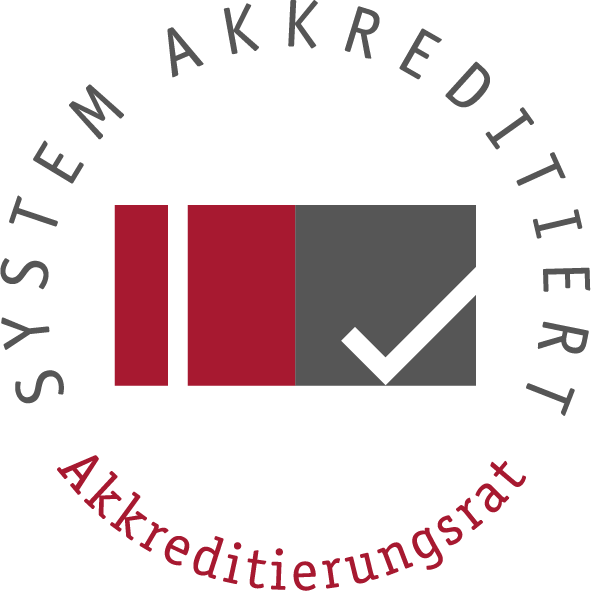
You can find all information about the admission requirements, the application and the selection procedure on our "Apply" page .
Please note in particular: When applying for the study programme Management & Data Science , you can achieve up to 18 additional points in the selection procedure through an above-average result in our subject-specific online admission test (Leuphana Data Science Online Study Aptitude Test) and thus improve your chances of being admitted to the study programme in Lüneburg. The Leuphana Data Science Online Study Aptitude Test measures subject-related skills in the fields of maths, statistics and programming. All applicants who have properly applied will receive an invitation in June with an access code to take the test. Taking the test is free of charge and voluntary. This year's test is expected to be held on 11th June 2024 at 2pm (CEST). Applicants should double-check whether their hardware is compatible with the test infrastructure and familiarize themselves with the platform so that they know how it works when they take the test. They can do so by logging into the system at https://dsat.leuphana.de/#/demo-test using the email address they used to apply only. In case you would like to prepare for the test, here are some pointers to publicly available textbooks. However, please note that any other book or resource covering the same topics will be useful as well. Just pick the one you feel most confident with. Linear algebra: http://joshua.smcvt.edu/linearalgebra/book.pdf Calculus: https://ocw.mit.edu/ans7870/resources/Strang/Edited/Calculus/Calculus.pdf Statistics: https://www.math.arizona.edu/~jwatkins/statbook.pdf Programming: https://cfm.ehu.es/ricardo/docs/python/Learning_Python.pdf Learning from Data: https://work.caltech.edu/library/textbook.html Mathematics for Machine Learning: https://mml-book.github.io/book/mml-book.pdf
Further information about the test and the application can also be found on the "Apply" page .
We require all applicants who would like to study Management & Data Science to be proficient in at least one programming language and to have a solid basic knowledge of linear algebra in order to be able to meet the requirements of the Masters programme from the very beginning. Please download the test below to get an insight into the topics you will deal with during your studies.
- Self-Assessment
The study programme matches your interests? Then you will find further information for prospective international students on residence and social matters, such as visa, residence permit, health insurance or finding accommodation, on the following pages. Please note that the information for incoming exchange students and international degree-seeking students differs slightly.
Information for incoming exchange students
Information for international degree-seeking students
Degree awarded: Master of Science (M.Sc.) Application deadline: EU degrees: 1 June / Non-EU degrees: 1 May Type of programme: Academic prerequisites Study places: 25 Start date: October 1 Extent: 120 CP according to ECTS Duration: 4 semesters Language: English Semester contribution: ca. 320 EUR
First contact point
The Information Office (Infoportal) is your contact point for
- general information on the application procedure
- initial questions about the study programmes offered at Leuphana
- making an appointment with the Graduate School Student Counselling Service .
Information Office
Building 8, Ground Level Fon + 49.4131.677-2277 studierendenservice @ leuphana.de
By telephone Mon - Thu 9 am - 4 pm Friday 9 am - 12 noon
Campus opening hours Mon - Thu 9.30 am - 12 noon + 1 pm - 2.30 pm Fr 9.30 am - 12 noon
Student Counselling
To make an appointment with our Student Counselling Service, please make an appointment on our website .
Appointments are usually available in the following time slots (CET/ CEST): Wednesday 2 - 4 pm Thursday 4 - 6 pm
JavaScript is not activated in your browser. Please activate JavaScript to use the whole functionality of this website!
- How Do I Find the Right Degree Program for Me?
- Courses from A to Z
- Teaching Degrees
- Rechtswissenschaft
- Continuing Education
- Junior Studies Program
- Study Programs with an orientation phase
- Computer Science Programs
- English-language Courses and Degree Programs
- Double Degree Programs
- Auditors & Visiting Students
- Summer & Winter Schools
- Before Application & Enrollment
- Application Bachelor & First State Examination in Law
- Application Master
- Enrollment Bachelor & First State Examination in Law
- Enrollment Master
- Enrollment Doctoral Candidates
- University Admissions without University Entrance Qualifications
- Second Degree
- Forms & Documents
- Information on Starting Your Studies
- Organizing Your Studies
- Organizing Your Exams
- Organizing your Studies and Exams with PULS
- Key Competences
- Course Catalogs & English-language Courses
- Cancellation of Degree Programs
- Legal Foundations
- Study & internship abroad
- Financing, Funding & Housing
- Looking Towards Graduation
- Central Student Advisory Service
- Counseling for Students with Health Impairments / Chronic Conditions
- Mental Health Counseling
- Departmental Advising
- International Office
- Student Administration Center/ Office of Student Affairs
- Advisory Office for Master's Application and Admission
- PUCK Service Point
- Student Administration Center/ Examination Office
- PULS-Service
- Important Dates for Prospective Students
- Application and Enrollment Deadlines
- Important Dates and Deadlines at the Beginning of your Studies
- Important Dates and Deadlines during your Studies
- German Sign Language
- Easy-to-read
- Data Science
- Studying at the UP
- What to Study
- Application and Enrollment
- Advising and Services
- Dates and Deadlines
- Research at the UP
- Profiles, Programs and Projects
- Research Funding
- Open Science
- Research Data
- Cooperations and Partnerships
- Young Academics
- Explore the UP
- Organization
- Corporate Community Relations
- Campus International
- Förderinstrumente
- Working at the UP
- Mail.UP (Webmailbox)
- University Library
- Evaluation Portal (PEP)
- Internship Portal
- ZIM – Center for IT and Media

Data Science | Master

The interdisciplinary field of data science deals with methods for using data to automatically produce knowledge, insights, and models for prognosis, risk, and action. The master's degree program, which is taught in English, connects machine learning, statistical data analysis, natural scientific methods of data assimilation, and business analytics. The program offers broad and interdisciplinarily structured training in methods and is characterized by a strong emphasis on practice and research.
- PROGRAM FLYER (PDF 3,11MB)
- FACULTY PAGES
Program Content
The interdisciplinarily structured master's degree in data science combines content from computer science, mathematics, information systems, and the natural sciences. Core courses provide you with an overarching understanding of machine learning and deep learning, statistical data analysis, data assimilation, business analytics, and big data infrastructures. More specialized courses help you engage with the current state of research for the areas of your choosing.
In seminars, you will work through complex topics, and in the module of applied data science, you will apply, in practice, the competences you have acquired. In the research module, you will be connected to a research project at the University of Potsdam or one of Potsdam's many research institutions. An industry internship is also possible as an option. Berlin/Potsdam's lively start-up scene and many big data companies offer ample opportunities for internships.
Course Objective and Future Career Options
Data scientists are in equally strong demand in many areas of the economy and in research. Career paths exist in areas where large quantities of big data are created that can serve as the basis for decision-making, prognoses, and intelligent action. These include, for example, online commerce; search machines; the finance sector; the automobile, pharmaceutical, and manufacturing industries; meteorolgy; and climate research.
The master's degree offers you an accordingly large number of possible career paths. The degree prepares you for a career as a manager or highly qualified expert in a company, for founding a company of your own, or for completing a PhD and pursuing a research career in computer science, mathematics, or the natural sciences.
Prerequisites for Admission to the Master’s Program
Applying for a master's degree generally requires you to hold an undergraduate degree, such as a bachelor's degree. A first degree in either computer science or mathematics qualifies you in any case for this master's degree. We strongly recommend that your prior studies included preliminary courses in probability and statistics. A degree in information systems or natural sciences qualifies you if your first degree strongly emphasized content from the areas of computer science or mathematics. Depending on your background, bridge modules can complete gaps in the other respective discipline. The program additionally requires proof of good English-language skills corresponding at least to the C1 level of the Common European Framework of Reference for Languages.
You can find the exact prerequisites for admission in the subject-specific Admission Regulations for the master's degree program in data science.
Program Structure
In the four-semester master's program, you earn a total of 120 credit points, consisting of the following modules and your master's thesis: for additional information, please consult the subject-specific Degree Regulations or the Departmental Advisory Office .
Department of Computer Science
Maria Alegre Moral and Dr. Henning Bordihn | Departmental Advising
- +49 331 977-314032
- counsellor u cs.uni-potsdam p de
Campus Golm Building 70, Room 1.50
Advantages at a Glance
The English-language master's degree program is characterized by a unique interdisciplinary combination of machine learning, statistical data analysis, natural scientific methods of data assimilation, and business analytics. You may choose your more specialized subjects yourself. The University of Potsdam is a leading center of research in data science. The Collaborative Research Center "Data Assimilation", for example, investigates the integration of data and natural scientific models in cognitive neurosciences, biophysics, and earth sciences. The degree program opens up excellent career opportunities for you in research, established companies, and the start-up scene.
The University of Potsdam has taken into account the actual conditions among students and introduced the option for part-time study into several degree programs. This also pertains to Data Science. For more information, go to part-time studies at the University of Potsdam.
- Application
Have you decided for a Master's Program in Data Science at the University of Potsdam? Then you should take the next step on the application pages to find out more about current application and enrollment procedures.
Important Links
- Frequently Asked Questions
- Study and Examination Regulations
- Admission Regulations
This description is based in part on information from the subject-specific regulations for a master’s degree in Data Science at the University of Potsdam dated December 17, 2018 (AmBek No. 03/2018, p. 138).
- CHE University Ranking
- DAAD database on admission requirements
- Help and Advice
International Programmes 2023/2024

Data Engineering and Analytics (MSc) Data Engineering and Analytics (MSc)
Technical university of munich • garching b. münchen.
- Course details
- Costs / Funding
- Requirements / Registration
You can complete the programme entirely in English.
Winter semester: 31 May Summer semester: 30 November
Integrated research and degree programmes designed for the future: The TUM School of Computation, Information and Technology (CIT) at the Technical University of Munich (TUM) unites the disciplines of Mathematics, Informatics, and Electrical and Computer Engineering . Our research and teaching activities range from theoretical knowledge to its application, focussing across disciplines on the major challenges of our time, such as the digital transformation. At the same time, our expertise remains firmly embedded in our core disciplines.
Handling and analysing very large amounts of data is an urgent problem in many areas of science and industry, one that requires novel approaches and techniques. The trend towards "big data" is caused by a host of developments:
- The creation and storage of large data sets becomes feasible and economically viable, for example, due to price decreases in storage space, sensors, smart devices, social networks, and other factors.
- Technical advances, for example, in multi-core systems and cloud computing, make it possible to examine data sets on a large scale.
- Such amounts of data not only have their origin in the "classical" domains like business data, but are now created in many areas of life. Consider vehicles that create sensor data and share information via intelligent networking, or consider data that is created by intelligent energy grids.
The Master's programme in Data Engineering and Analytics steps up to these developments and provides an education that on the one hand enables graduates to design and plan industry grade solutions in the area of Big Data and on the other hand creates a solid starting point for ventures into research. The programme is divided into three areas of study: Data Analysis, Data Engineering and Data Engineering and Analytics:
- Data Analysis is concerned with the fundamentals of understanding and modelling data and the underlying relationships therein. It is also concerned with topics that require solid mathematical foundations, including the following: Fundamentals of Convex Optimisation, Computational Statistics, and more.
- Data Engineering consists of lectures about the construction of systems that perform efficient and scalable data processing, thus enabling methods of data analysis on large data sets. This area of study also contains lectures about distributed systems, distributed databases, query optimisation, database systems on modern CPU architectures, and high performance computing. The curriculum comprises mandatory courses on Data Analysis and Data Engineering.
- Data Engineering and Analytics offers lectures about machine learning, business analytics, computer vision, and scientific visualisation.
A Master's degree in Data Engineering and Analytics from TUM will enable you to work in executive positions in industry and will qualify you for a career in research (PhD).
More information here: https://www.cit.tum.de/en/cit/studies/degree-programs/master-data-engineering-and-analytics/
The Master's programme in Data Engineering and Analytics is a two-year programme divided into four semesters. Although it has a strong focus on the management (acquiring, storing, retrieving, sharing, visualising) and analysis of very big data, it is nevertheless a quite flexible programme that allows you to structure your studies towards your preferred sub-areas of interest.
You will attend lectures, practical courses, and seminars, and you will carry out research. The curriculum also includes aspects of the social and ethical impact of managing big data, both within the technical courses and also in specialised support electives.
The Master's thesis is written in the fourth semester.
- International guest lecturers
- Integrated study abroad unit(s)
- Language training provided
- Training in intercultural skills
It is possible to spend one or two semesters at one of our partner universities or to take intensive courses at 21 European partner universities within the framework of the ATHENS programme (Advanced Technology Higher Education Network Socrates).
- Internships are not mandatory, but there are good possibilities during lecture-free periods.
- Career service offered
- Support for business creation offered
Approx. 160 EUR per semester
In order to cover personal expenses while studying in Munich, we recommend a budget of approx. 1,000 EUR per month.
- Bachelor's degree in Informatics / Computer Science
- Applicants must provide a statement of reasons for their programme choice and a scientific essay.
- Applicants may be invited for a written test on campus.
- GRE or Gate Test for applicants with a degree from Bangladesh, China, India, Iran, and Pakistan
- Preliminary documentation from uni-assist for applicants who obtained their Bachelor's in a country outside of the EU/EEA
For further information, see: https://www.cit.tum.de/en/cit/studies/degree-programs/master-data-engineering-and-analytics/ .
All applicants must submit proof of sufficient English language skills. The accepted English certificates and ways to prove your English language skills can be found here: https://www.tum.de/en/studies/application/application-info-portal/admission-requirements/language-certificates
Proof of German language skills is not needed for the application.
In order to apply at TUM, you need to open a TUMonline account: https://campus.tum.de/tumonline/webnav.ini . Our application wizard will guide you step by step through the online application procedure.
There are various job opportunities as teaching and research assistants at the university. Munich is also a very good place to find internships and jobs at software companies.
It’s not easy to find a place to live in Munich – but it’s not impossible either! The Technische Universität München (TUM) does not own any student residences, but tries to support students and staff in their search for accommodation by providing personal advice, housing listings and useful information to ensure that you can find a place to call your own.
More information: https://www.tum.de/en/studies/during-your-studies/living-and-working/accommodations
TUM has its own "Career Service", which offers application checks, career counselling and a mentoring programme. https://www.community.tum.de/en/career-service/
- Welcome event
- Buddy programme
- Accompanying programme
- Specialist counselling
- Visa matters
Technical University of Munich
University location, activate map.
To activate the map, click on the "Show map" button. We would like to point out that data will be transmitted to OpenStreetMap after activation. You can find out more in our privacy policy. You can revoke your consent to the transmission of data at any time.
We need your help to improve our website!
we are re-designing our website and want to include you in the process. Please fill out a short questionnaire. This will only take a few minutes, but will help us tremendously to determine how we can improve the usability of our website. Thank you very much for your support!
Best regards, Your DAAD Team
© DAAD

IMAGES
VIDEO
COMMENTS
A contract for a fully-funded position with competitive salary according to the applicable regulations of the participating institutions (e.g. German E13 TVöD or TV-L) at one of the three HIDSS4Health research institutions. Possible Start Date: Successful candidates will start their scientific work between May and September 2022.
HIDSS4Health exists to attract, promote and train the best young talents in the research interface between data science and health-related applications. HIDSS4Health offers a structured doctoral training program embedded in a highly interdisciplinary research environment, bringing together experts from the data and life sciences.
About KCDS. KIT Graduate School Computational and Data Science (KCDS) is a graduate school at KIT Center MathSEE that offers an interdisciplinary training program for doctoral researchers in the field of model-driven and data-driven computational science. In this unique program, doctoral researchers will be able to conduct an interdisciplinary ...
Top-ranked German Universities in Data Engineering. Top 100 Worldwide. Top 250 Worldwide. National Ranking. #38 Times Higher Education Ranking. Technical University of Munich. public Technical University. No. of Students: approx. 47,000 students. Program Fees: € 0 - € 13,391 (per semester)
Bayer Foundation: Carl Duisberg Fellowships in Medical Sciences. or for an MSc or PhD (or equivalent) in medical engineering, applied medical sciences, public health, or data science in medicine. It funds students from Germany who wish to carry out research stays, internships. for data-science-phd positions.
Here are the best universities in Germany to pursue master's in Data Science: University. Subject Score (Select Ranking Bodies) Data Science Master's Programs (Inc. Related) Global Employability Rank (THE) Language of Instruction. Industry Collaborations. Technical University of Munich. 1.22.
These data have been kindly made available to the DAAD by the German Rectors' Conference. Deutscher Akademischer Austauschdienst e.V. Kennedyallee 50. 53175 Bonn. Germany. All addresses in the DAAD Network. Receive regular up-to-date information about our work and organisation. Newsletter - DAAD.
The degree course in Artificial Intelligence and Data Science is aimed at students who have completed a Bachelor's degree course of at least six semesters or equivalent academic degree in Artificial Intelligence and Data Science, Data Science, Computer Science, Software Engineering or in a degree course with related content.
People who searched for data science phd jobs in Germany also searched for research scientist computer vision, computer vision scientist, research staff member, machine learning research scientist, sciences des données, python data scientist. If you're getting few results, try a more general search term.
The Department of Data Science is part of the Faculty of Sciences at FAU. It was founded on April 1 st, 2021. Our society is increasingly complex and diverse and technology rapidly evolves to face its challenges, offering opportunities, solutions and products that we could not imagine until very recently. Simultaneously science experiences a ...
The international master's programme 'Data Science and Artificial Intelligence' aims to prepare students for demanding national and international research and development activities in this field. The Master's programme is based on complex data analysis and automation: from mathematics and statistics to machine learning, artificial intelligence ...
Masters Programme. The Masters programme in Management & Data Science is geared towards students wanting to advance their skills in the data analysis of real-world phenomena. After completion of this program our graduates have the ability to analyze massive and complex data sets, design statistical models based on the latest in information ...
The interdisciplinarily structured master's degree in data science combines content from computer science, mathematics, information systems, and the natural sciences. Core courses provide you with an overarching understanding of machine learning and deep learning, statistical data analysis, data assimilation, business analytics, and big data ...
Top-ranked German Universities in Artificial Intelligence. Top 100 Worldwide. Top 250 Worldwide. National Ranking. #1 Poets & Quants World's Best MBA Programs for Entrepreneurship. ESMT Berlin. private (state-approved) University. No. of Students: approx. 1,000 students. Program Fees: € 8,500 (per semester)
Data Engineering and Analytics offers lectures about machine learning, business analytics, computer vision, and scientific visualisation. A Master's degree in Data Engineering and Analytics from TUM will enable you to work in executive positions in industry and will qualify you for a career in research (PhD).
The result of the HKPFS 2024/25 will be announced in April/May 2024 by RGC. The Fellowship awardee will receive: an annual stipend of HK$331,200 (~US$42,460). conference and research-related travel allowance of HK$13,800 (~US$1,760) per year for a maximum of three years. Chow Yei Ching School of Graduate Studies Entrance Scholarships around HK ...